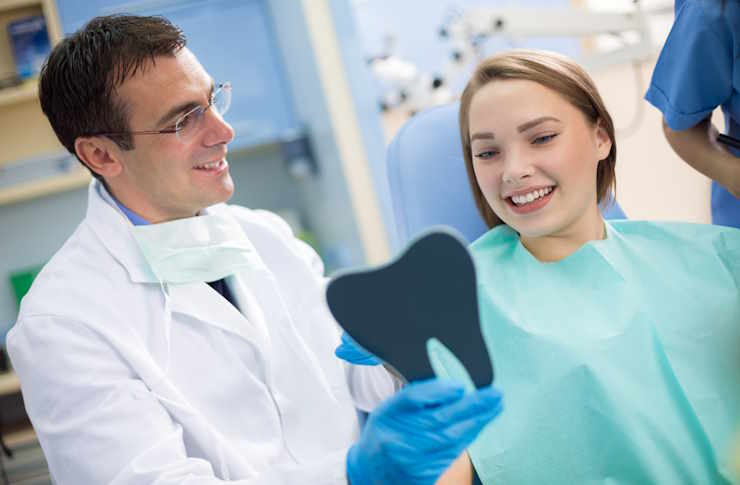Compare Dental Treatment Options Between UK and Turkish Clinics
Curious about dental clinics in Turkey from the UK? This article looks at why some patients consider international care. Learn about treatments offered, travel planning, and what to ask beforehand. Understand the process from consultation to return. Informed choices begin with clear info

What dental treatments are commonly sought in Turkey?
Turkish dental clinics attract international patients primarily for cosmetic and restorative procedures. Dental implants represent the most popular treatment, often combined with crown and bridge work. Patients frequently seek full mouth reconstructions, including All-on-4 and All-on-6 implant systems. Veneers, teeth whitening, and smile makeovers also draw significant interest from UK visitors.
Root canal treatments, gum disease therapy, and orthodontic work including clear aligners are commonly requested services. Many clinics specialise in complex cases requiring multiple procedures, offering comprehensive treatment packages that combine several dental services. The appeal often lies in completing extensive dental work during extended visits rather than multiple appointments over months in the UK.
How do qualifications and standards compare between UK and Turkish dentists?
Both UK and Turkish dental professionals undergo rigorous training, though their educational pathways differ. UK dentists complete five-year dental degrees from recognised universities, followed by mandatory foundation training and continuous professional development. The General Dental Council regulates UK practitioners, ensuring adherence to strict standards.
Turkish dentists typically complete five to six years of dental education at accredited universities. Many Turkish dental professionals pursue additional specialisation training, particularly in cosmetic and implant dentistry. Leading Turkish clinics often employ dentists with international qualifications or training from European and American institutions. Both countries maintain professional regulatory bodies that oversee practice standards and continuing education requirements.
What are the potential cost savings for dental work in Turkey?
Dental treatment costs in Turkey can be significantly lower than UK prices, with savings ranging from 50% to 70% for many procedures. This cost difference stems from lower operational costs, favourable exchange rates, and competitive market conditions. However, patients must factor in travel expenses, accommodation, and potential follow-up visit costs when calculating total expenditure.
The substantial cost differential makes Turkey particularly attractive for extensive dental work. Patients requiring multiple implants, full mouth reconstructions, or comprehensive cosmetic treatments often find the overall savings justify international travel. Many Turkish clinics offer package deals including treatment, accommodation, and airport transfers to provide transparent pricing for international patients.
How does the treatment process differ for UK patients in Turkish clinics?
Turkish clinics catering to international patients typically streamline treatment processes to accommodate shorter visit durations. Many procedures requiring multiple UK appointments are consolidated into intensive treatment periods lasting one to two weeks. Clinics often provide comprehensive initial consultations via digital communication before patients travel.
The treatment timeline differs significantly, with Turkish clinics frequently offering same-day or next-day procedures that might require weeks of scheduling in the UK. Many facilities provide dedicated patient coordinators who speak English and assist with treatment planning, accommodation arrangements, and post-treatment care instructions. Follow-up care coordination with UK dentists is often arranged before patients return home.
Unique considerations for UK patients seeking dental care in Turkey
UK patients must consider several specific factors when evaluating Turkish dental treatment. Dental insurance coverage typically doesn’t extend to overseas treatment, requiring patients to pay privately. Post-treatment complications may necessitate emergency care arrangements or early return to the UK for follow-up treatment.
Language barriers, despite many Turkish dentists speaking English, can sometimes complicate detailed treatment discussions. Patients should verify that their chosen clinic maintains relationships with UK dental professionals for ongoing care coordination. Additionally, some UK dentists may be reluctant to provide follow-up care for treatments initiated abroad, making it essential to establish post-treatment care arrangements beforehand.
How do UK and Turkish dental clinics compare in terms of services and pricing?
| Treatment Type | UK Average Cost | Turkish Average Cost | Potential Savings |
|---|---|---|---|
| Single Dental Implant | £2,000-£3,500 | £600-£1,200 | 60-70% |
| Porcelain Veneers (per tooth) | £800-£1,500 | £200-£400 | 65-75% |
| All-on-4 Implants | £15,000-£25,000 | £4,000-£8,000 | 65-80% |
| Teeth Whitening | £300-£800 | £150-£300 | 50-60% |
| Root Canal Treatment | £400-£1,200 | £150-£400 | 60-70% |
Prices, rates, or cost estimates mentioned in this article are based on the latest available information but may change over time. Independent research is advised before making financial decisions.
Turkish clinics often provide more comprehensive service packages, including accommodation, transfers, and extended consultation time. UK clinics typically offer more accessible ongoing care and established relationships with patients’ general practitioners. Turkish facilities frequently feature newer equipment and modern facilities, while UK clinics provide familiar regulatory frameworks and easier follow-up care access.
The decision between UK and Turkish dental treatment involves balancing cost savings against convenience, continuity of care, and personal comfort levels. Both options can provide excellent dental care when patients choose reputable providers and carefully plan their treatment journey. Thorough research, including verification of credentials and patient reviews, remains essential regardless of the chosen location.
This article is for informational purposes only and should not be considered medical advice. Please consult a qualified healthcare professional for personalized guidance and treatment.




